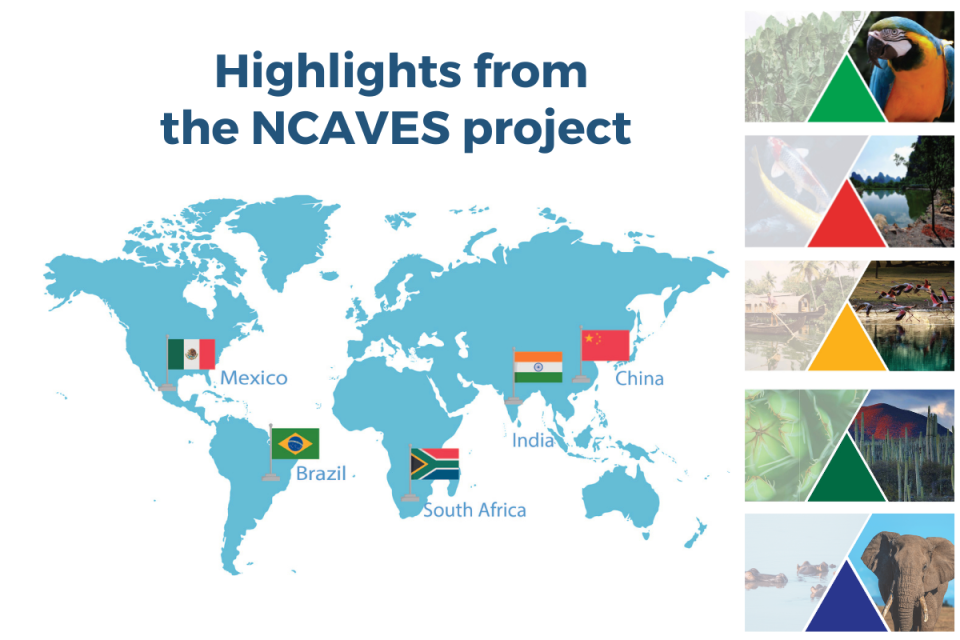Highlights from the NCAVES project

On 7 December 2021, during the 6th Forum of Experts on SEEA Ecosystem Accounting, an event was held to showcase the highlights of the project Natural Capital Accounting and Valuation of Ecosystem Services – NCAVES.
From its inception in 2017 throughout its finalization, at the end of this year, the project NCAVES aimed to advance environmental-economic accounting, in particular ecosystem accounting. The project was implemented at the global level by the United Nations Statistics Division (UNSD) and the UN Environment Programme, in collaboration with the Secretariat of the Convention on Biological Diversity (CBD), funded by the European Union.
At the core of this project was the pilot testing of the SEEA Ecosystem Accounting (EA) in the five participating countries: Brazil, China, India, Mexico and South Africa. The active participation of these countries in the development of SEEA EA contributed significantly to its adoption by the UNSC in March 2021. It also helped to raise awareness about ecosystem accounts, boosted multistakeholder engagement and created momentum at the national level for the implementation of the SEEA EA, in a collaborative and participatory way.
A key aspect of the project was that it was broader than a mere statistical project, involving both the national statistical office and the environmental sector in each of the participating countries in order to mainstream biodiversity and ecosystems at (sub)national level policy planning and implementation. For example, the developed ecosystem accounts have been applied in policy scenario analysis, addressing issues such as achieving land degradation neutrality and informing eco-compensation policies.
After showing a video summarizing the results of the project, the five participating countries presented their results in the compilation of ecosystem accounts. The main country results have also been summarized in policy briefs.
At the global level, the project NCAVES developed guidelines and methodology and tools like ARIES for SEEA to aid the implementation of accounts. Inroads were also made in business accounting by conducting pilot case studies on the alignment of the SEEA EA and corporate natural capital accounting practices.
The project contributed with an assessment of the linkages between existing global monitoring frameworks with the SEEA EA and has been working closely with the CBD Secretariat towards alignment of the post 2020 Global Biodiversity Monitoring Framework and the SEEA EA.
In total the project produced about 90 reports, and organized around 120 events, such as global and national forums, training workshops including three regional trainings, outreach events and technical workshops.
The NCAVES project has shown that advancing NCA in countries produces momentum to move towards integrated evidence-based policies that address biodiversity loss and climate change. The adoption of the SEEA EA and the (expected) adoption of the Post-2020 Global Biodiversity Framework and its monitoring framework present a unique opportunity to scaling-up SEEA implementation in countries.
To learn more about the NCAVES project, please see here.
